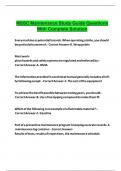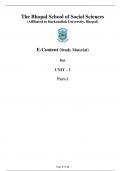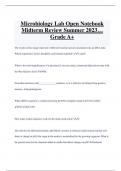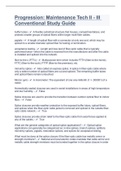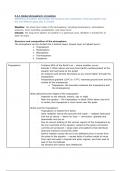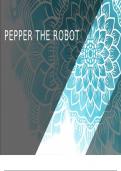and Random Forests
1 The Breast Cancer dataset
This dataset contains features regarding images of malignant and benign
breast tumors. There are ten continuous features that describe the size and
shape of each tumor. These are a) radius (mean of distances from center to
points on the perimeter) b) texture (standard deviation of gray-scale values)
c) perimeter d) area e) smoothness (local variation in radius lengths) f)
compactness (perimeter
/ area - 1.0) g) concavity (severity of concave portions of the contour) h) con-
cave points (number of concave portions of the contour) i) symmetry j) fractal
dimension ("coastline approximation" - 1).
The goal of this dataset will be to use to provided features to predict if a
sample is malignant (M) or benign (B). The dataset has been split up into
a training data set and a test data set. We can read in the dataset with the
following command:
cancer.train<-read.csv(file="breast-cancer-
train.csv",header=TRUE,stringsAsFactors=T)
cancer.test<-read.csv(file="breast-cancer-
test.csv",header=TRUE,stringsAsFactors=T)
summary(cancer.train)
2 Decision tree
We will use the ’rpart’ R package to learn and apply our decision trees. Install
it from CRAN if you have not already done so. We can load in the library with
the standard command:
library(rpart) library(rpart.plot)
We then need to apply it to the breast cancer dataset. One of the standard
optimizations that is part of the rpart() function is to optimize the number
of branches to include in the decision tree. The more branches, the higher the
chance to overfit, but we need some branches to solve our classification problem.
It does this by running an internal cross-validation, where part of the training
data is held out to validate, to optimize this branch parameter.
tree <-
rpart(diagnosis~.,data=cancer.train,method="class")
#Overview of the optimization
printcp(tree)
1
, #CV optimization of branch
number plotcp(tree)
We needed to set our method to "class" for classification. Now that we have
an optimal decision tree for classification, we can visualize it by using the
following command:
rpart.plot(tree,main="Decision Tree for Cancer Dataset")
This gives a clear overview of the features that are being used in the decision
tree.
2

